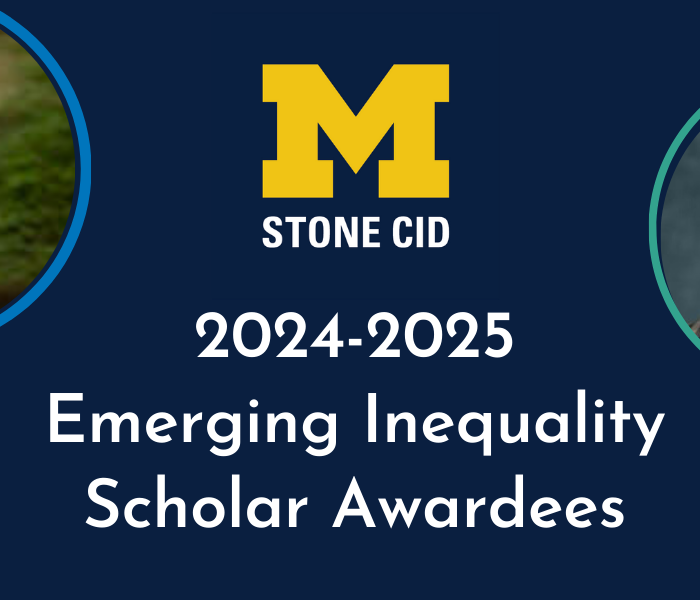We’re pleased to announce our inaugural CID Emerging Inequality Scholars. Congratulations to Catalina Anampa Castro, a joint doctoral student in the departments of Sociology and Public Policy, and Zsigmond Palvolgyi, a doctoral student in Economics.
As an affiliate member of CID since fall 2020, Catalina has found strong mentorship, a space to give and receive rigorous interdisciplinary feedback, and valuable collegial support at the center. “I applied to be an Emerging Inequality Scholar in the hopes of growing and fostering my research among such a community of scholars,” she explained.
Catalina’s research uses data from the 1940 U.S. Census and Panel Study of Income Dynamics “to explore the intersection between the consequences of historical residential segregation policies and the reproduction of socioeconomic attainment from one generation to another through housing, i.e., wealth mobility.”
“First, I center historical place-conscious policies and mechanisms that contributed to creating the racial geography of the United States in the study of the intergenerational transmission of wealth. Finally, I will update multigenerational models of social mobility by extending previous analyses starting in 1968 twenty-five years back in time to the post New Deal period.”
Zsigmond studies how policies shape long-term inequality and intergenerational mobility, including how past racial residential segregation affects the racial wealth gap through wealth accumulation in the housing market.
“More precisely, I would like to quantify how large the Black-White wealth gap would be today without residential segregation in the past,” he explained. “Due to my interest in the research of wealth inequality, I was very excited to learn about the CID scholarly community and the CID Emerging Inequality Scholar Award.”
Zsigmond said he is looking forward to enriching CID’s community and working on broadening our understanding of the roots of wealth inequality.
Both students will complete their fellowships in winter 2023. Learn more about CID’s Emerging Inequality Scholar Award.

